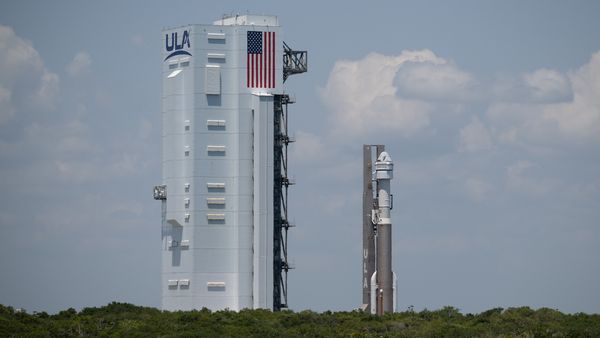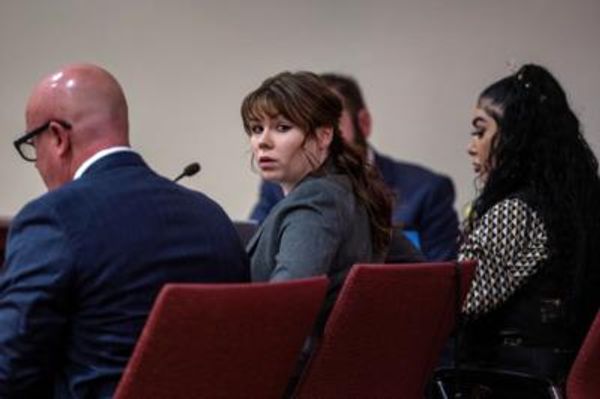
Late Tuesday, a deal in the House of Representatives set the stage to avoid a government shutdown on Friday, Nov. 17, at midnight. The stopgap bill would fund some federal departments through mid-January and the rest through February, but it still must pass the Senate and be signed by President Joe Biden to completely avert a shutdown.
But as the deadline grew closer, a contingent of political observers have argued that there was nothing especially remarkable to see here. U.S. Rep. Andy Biggs (R-Ariz.) wrote that in the event of a shutdown, “government will keep operating. It’s not a shutdown of government, it’s really a pause in out-of-control federal spending related to nonessentials.” Brian Darling, former counsel to U.S. Sen. Rand Paul (R-Ky.), wrote in an op-ed that “in truth, this would be a shutdown in name only.”
Those like Biggs and Darling routinely point out that under a shutdown, government employees deemed essential continue to work; that federal employees are back-paid once an appropriations bill is passed; and that three-quarters of overall government spending continues to flow.
There is truth to such claims. And it’s important to keep perspective in these divided, polemical times. But government shutdowns decidedly do not come for free. We’ve been down this road before, and our economy, government, and public trust are worse for it.
Let’s start with the impact of a shutdown on the American economy. The Congressional Budget Office (CBO) estimates that the five-week partial shutdown in 2019 “delayed approximately $18 billion in federal discretionary spending for compensation and purchases of goods and services and suspended some federal services.” While spending eventually resumed and back wages were paid to federal employees, the CBO estimates that $3 billion in gross domestic product (GDP) was forever lost.
Individual businesses and workers suffer too. In the 2013 shutdown, Moody’s Analytics estimated that “a couple of hundred thousand private sector employees, many at defense contractors, could not work because of the shutdown and are unlikely to receive back pay.” Meanwhile, Moody’s explained, suspended payments to other federal employees further hampered consumer spending, causing ripple effects all through the American economy. The Bloomberg Consumer Comfort Index plummeted, and the percentage of people predicting adverse economic conditions reached heights not seen since the 2008 collapse of Lehman Brothers.
Cuts in productivity, government services
The costs of a government shutdown, however, are hardly confined to the economy. They also take the form of decreases in government productivity and the interruption of key services to the American public. Under a shutdown, agencies must scramble to figure out who is deemed essential and who is not, just as they must develop new operating plans while missing large parts of their staff for indefinite periods of time. According to the Office of Management and Budget, 6.6 million days of work were lost during the 2013 shutdown, resulting in more than $2 billion in lost productivity from federal workers.
Such losses hurt significant portions of the American public. In the 2019 shutdown, the Small Business Administration had to stop approving agency-backed loans, forcing some entrepreneurs to turn to more expensive funding options. That same year, 60,000 Justice Department hearings for non-detained migrants were suspended, causing significant delays in the immigration system. During previous shutdowns, the Food and Drug Administration paused key inspections for food safety, and the Environmental Protection Agency delayed its hazardous waste and drinking water site inspections. In 2023, a shutdown impacting the Department of Health and Human Services could mean that 10,000 low-income families lose access to child care through the Head Start programs.
The most intangible impact of a government shutdown, meanwhile, may also the most important: the prompt and significant downturn in public trust in political institutions. Shutdowns powerfully convey to the American public that their government is unreliable, dysfunctional, and prone to failure. They fortify a rising belief, which politicians are all too willing to exploit, that government is irredeemably broken and hence unworthy of either investment or reform.
Government shutdowns are not mere inconveniences, momentary pauses allowing for continued negotiation. They come at great cost. They significantly hamper the ability of federal agencies to fulfill basic responsibilities. They disrupt key services to the American people. And they erode public trust in the government.
There are, of course, serious debates to be had about runaway government spending and crushing public debt. Teetering on the edge of yet another government shutdown, however, is no place to have them. And blithely ignoring its costs will not take us any closer to building the more responsible, more effective government that we now so sorely need.
William G. Howell is the director of the Center for Effective Government and the Sydney Stein Professor in American Politics at the University of Chicago Harris School of Public Policy.
Sadia Sindhu is the executive director of the Center for Effective Government at the University of Chicago Harris School of Public Policy.
This op-ed is part of “The Democracy Solutions Project,” a partnership among the Chicago Sun-Times, WBEZ and the University of Chicago’s Center for Effective Government to examine critical issues facing American democracy as the 2024 elections approach.
Give us your suggestions for fixing what ails American democracy. Take our Democracy Solutions Project survey on our project’s home page: chicago.suntimes.com/democracy
The Sun-Times welcomes letters to the editor and op-eds. See our guidelines.







